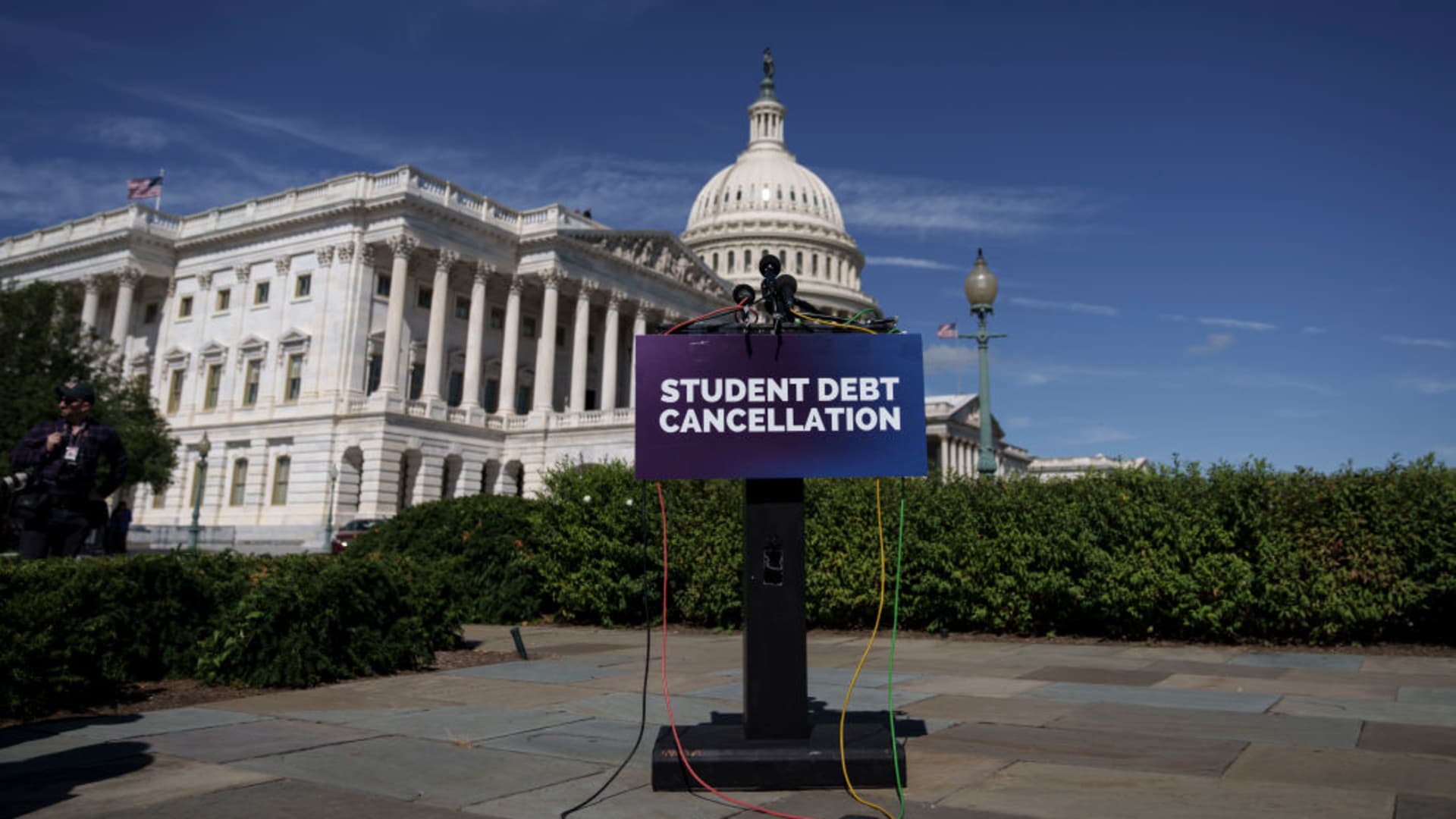Late last week, a federal appeals court officially halted President Biden’s student debt forgiveness.
The U.S. Court of Appeals for the 8th Circuit issued an administrative stay on debt discharges while it reviews a lawsuit filed by six Republican-leaning states. The plaintiffs argue the debt forgiveness would lead to a loss in tax revenue, causing economic harm to their states.
A lower court rejected the suit earlier in the week, saying the states had no standing.
The Biden administration has agreed to hold off on discharging any loans while it awaits a decision. In the meantime, officials are still encouraging borrowers to apply.
Education Secretary Miguel Cardona said they’re “moving full speed ahead” to continue processing applications in a tweet on Saturday. Biden also announced Friday that 22 million borrowers had already applied since the form opened.
Borrowers should apply for debt forgiveness as soon as possible, experts have previously told Make It. So while the application remains open, that advice holds true. Step one of actually seeing your debt forgiven is telling the government you want it forgiven by applying, says Mike Pierce, executive director of nonprofit Student Borrower Protection Center.
“Then the administration has to have the flexibility from a court to be able to actually do that,” Pierce tells CNBC Make It. “But nothing that has happened in the court so far affects step one for you to get your debt canceled.”
The White House said in a statement the stay does not prevent it from reviewing applications while it awaits a final decision.
The application website currently tells borrowers the Department of Education “will quickly process discharges” when it is able to do so. With interest and payments turning back on in January, borrowers would benefit from doing anything in their power to lower their balances before then.
Borrowers should remain hopeful that their debts will actually be forgiven based on the earlier courts’ dismissals, Pierce says.
“We know more now about what judges appointed by both parties think about the President’s ability to cancel student debt and more importantly, who has standing to challenge that,” says Pierce. “And so far, all the evidence is on the side of people getting debts canceled.”
Back in August, the Biden Administration announced it was making good on its campaign promise to provide some relief to student loan borrowers. The action extended the current pause on federal loan payments through the end of 2022 and offered loan forgiveness up to $10,000 for individual borrowers who earn less than $125,000 per year and up to $20,000 for qualifying Pell Grant recipients.
Eligible borrowers were first able to apply during a brief beta testing period before the application fully launched last Monday. You have until December 31, 2023 to apply by visiting StudentAid.gov.
Check out:
Borrowers react to student loan forgiveness: ‘A huge weight has been lifted off of my shoulders’
Student debt experts say $10,000 isn’t enough specifically for Black borrowers—here’s why
Sign up now: Get smarter about your money and career with our weekly newsletter
